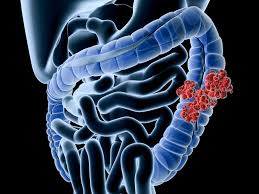As the weather gets colder and wetter,
we start to hear a lot about flu season , but it’s also important to
stay informed about another infection that’s potentially dangerous for
our older loved ones: Pneumonia. Pneumonia can originate from bacteria,
viruses and other causes, but regardless of the cause of infection, it
is one of the most common ailments in older adults. According to the American Academy of Family Physicians, more than 60% of seniors over 65 get admitted to hospitals due to pneumonia.
5 Tips to Prevent Pneumonia
In
fact, those over 65 are more susceptible to pneumonia, and this is due
to a variety of reasons, including changes in lung capacity that occur
with age, increased exposure to disease in community settings, and the
presence of predisposing conditions like cardiopulmonary disease or diabetes.
1. Know the Symptoms of Pneumonia in the Elderly
There
are challenges to the diagnosis of pneumonia in seniors because they
may not suffer the classic symptoms like fever, chills and cough,
according to the Infectious Disease Clinics of North America.
Keep an eye out for non-respiratory symptoms like weakness, confusion,
delirium or dizziness, or other, more vague symptoms , especially in
those with dementia or Alzheimer’s disease, which can impair the
accurate reporting of pneumonia symptoms. Also, it may be more difficult
to notice pneumonia symptoms in seniors
with preexisting conditions, so be alert to any changes in your loved
one’s health, and see a doctor if any unusual symptoms occur.
2. Practice Good Hygiene Habits
Ordinary respiratory infections, colds and influenza can sometimes lead to pneumonia; the Mayo Clinic
advises that you wash your hands regularly or use hand sanitizer to
help prevent the spread of these illnesses. Other types of infections,
like oral or dental infections,
can also lead to pneumonia, so good dental hygiene is a must. Lastly,
if you want to prevent pneumonia in elderly loved ones, make sure you
help them avoid others who are ill, whether it’s routine illnesses like
colds, flu and respiratory infections, or more serious diseases like
measles or chickenpox. All of these can lead to pneumonia.
3. Make Sure Seniors Get Immunized
The Mayo Clinic and the National Heart, Lung and Blood Institute
both advise seniors and others at risk for pneumonia to get vaccinated
against bacterial pneumococcal pneumonia. It’s a one-time vaccine that
can prevent or reduce the severity of pneumonia. Your doctor may also
suggest a booster vaccine after 5 years. It’s also a good idea to
vaccinate seniors against other illnesses that can lead to pneumonia,
particularly influenza.









